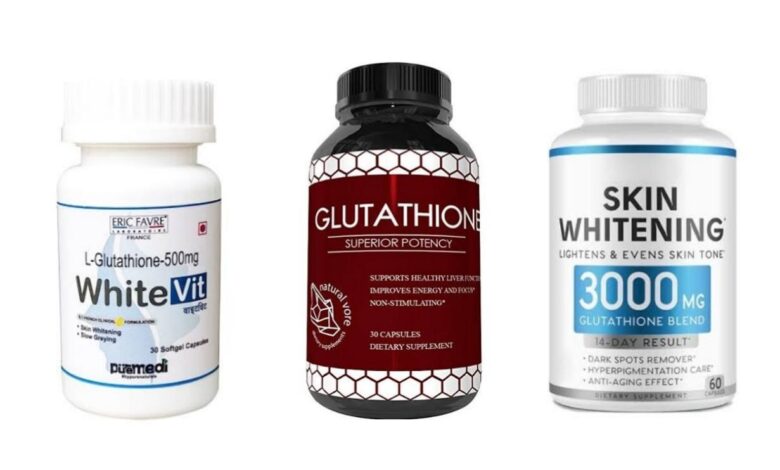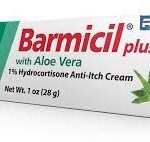Are Bleaching Pills Safe to Use?

What are skin bleaching pills?
Skin lightening pills are mostly supplements containing Glutathione, an antioxidant naturally found in human cells that neutralizes free radicals, boosts the immune system, and detoxifies the body. It can also cause skin lightening by converting melanin to a lighter color and deactivating the enzyme tyrosinase, which helps produce the pigment.
Efforts to lighten the skin dates back to at least the 1500s in Asia. Several chemicals have been shown to be effective in skin whitening, while some have proven to be toxic or have questionable safety profiles. This includes mercury compounds which may cause neurological problems and kidney problems. In a number of African countries, between 25 and 80% of women regularly use skin whitening products. In Asia, this number is around 40%. In India, specifically, over half of skin-care products are sold to whiten skin.
There are many complex terminologies in use when it comes to skin bleaching. In this article, we will try to provide insights and explanations as to what each implies as well as the advantages and disadvantages of bleaching.
What is Skin Whitening?
Skin whitening is a term that is used differently depending on the source. This is where you have to be extra diligent in looking at your ingredients and the company before purchasing or using a skin whitening product. For example, it’s very common among individuals of Asian descent to use the term skin whitening for products that lighten darker skin spots. In this case, skin whitening is referring to the use of creams that combat hyperpigmentation.
Contrast this with skin bleaching products that change the color of your natural skin. Bleaching is achieved through the use of very harsh and possibly dangerous chemicals and is not recommended.
What is Skin Lightening?
The process of using skin products that lighten dark spots caused by hyperpigmentation is referred to as skin lightening. In essence, skin lightening evens the skin tone by focusing on areas of the skin that are discolored, like blemishes and pigmentation, age spots, acne, and other forms of hyperpigmentation. This is achieved through the use of a lightening cream that inhibits the overproduction of the enzyme tyrosinase that is responsible for producing melanin.
How Skin Lightening Works
Skin lightening pills contain ingredients that work to decrease your body’s production of melanin. Melanin is responsible for the pigment in your skin and is made by cells called melanocytes. Bleaching products work by lowering the number of melanocytes in your skin.

Are bleaching pills safe?
When taken by mouth: Glutathione is possibly safe when used in doses up to 500 mg daily for up to 2 months. There isn’t a lot of information available about its possible side effects. When inhaled: Glutathione is possibly safe.
However, taking bleaching supplements like glutathione may not be advisable for everyone. Talk to your doctor about glutathione to determine if it’s right for you. Possible side effects may include:
- abdominal cramps
- bloating
- trouble breathing due to bronchial constriction
- allergic reactions, such as rash
The FDA does not consider OTC skin lightening products safe or effective. Products marketed as natural skin bleaching aids are not regulated by the FDA. Most skin lightening products are not recommended for darker skin tones and could cause hyperpigmentation.
Are bleaching pills’ results permanent?
The bleaching pill’s whitening effects are permanent only if you will maintain it (by avoiding exposure to sunlight). You won’t go back to your original skin color even if you stop taking these supplements, however, there is a tendency for you to be tan or darken your skin if you expose yourself to sunlight and other harsh elements.
What are the side effects of skin bleaching?
There are many dangers associated with the use of skin whitening agents most of which contain hydroquinone, corticosteroids, or mercury these includes;
Kidney Damage: Many skin whitening products contain mercury. The long-term accumulation of mercury in the body according to the World health organization (WHO), results in damage to the kidney.
Liver Damage: Many skin toning/bleaching products contain Hydroquinone a toxic chemical used in the manufacturing of rubber. This chemical is linked with the causation of adrenal dysfunction and liver diseases.
Nerve Damage: Another toxic effect of mercury-containing bleaching products is their effect on the nerve. The long-term use of mercury-containing cream/soaps causes peripheral neuropathy.
Birth Defects: Many expectant mothers put their unborn babies at great risk by their unrepentant use of bleaching products. Substances such as mercury a component of many whitening creams and soaps interfere with the development of the brain of the unborn child and are extensively distributed in breast milk resulting in encephalopathy in many Children.
Ochronosis: Ochronosis is a condition that results in the blue-black darkening of the skin as a result of the deposits of yellow-blue banana-shaped pigments in the dermis usually induced by hydroquinone another component many bleaching products contain. The treatment of this condition is complicated and may sometimes require laser or surgical peeling.
Cancer: Many skin bleaching agents contain substances that affect the physiology of the human body particularly cell function, one of these substances is hydroquinone which has been linked to cell mutation and cancer. A study published in the journal of the European Academy of Dermatology and venereology concluded that the risks of long-term effects such as cancer can no longer be ignored based on recent evidence of the potential risks, which are higher than previously assumed.
Cushings Syndrome: Corticosteroids in small quantities are relatively innocuous. However, in high doses, some steroids can alter the hormonal balance and can sometimes lead to a condition known as Cushing’s syndrome which exacerbates the symptoms of diabetes.
Hypertension and Permanent Stretch Marks: The Long-term use of whitening creams containing topical steroids has been linked to hypertension and another side effect, like stretch marks which are most times permanent. A study published in the journal of the American Academy of Dermatology reported that complications arising from the use of skin lightening products represent a significant health problem among Africans and the majority of these problems are traceable to clobetasol and hydroquinone.





